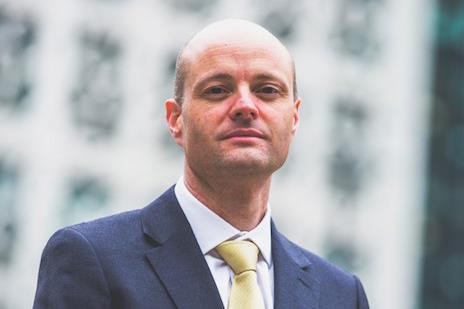The economy and state of opinion polls for the Conservatives mean we should only expect reforms that will be effective quickly, writes Paul Smith
We are often told that we live in unprecedented times, and that has certainly been true of recent weeks. For the first time ever, the next Doctor Who will be a former Doctor Who, with David Tennant reprising the role. As that news was breaking, in a striking example of life imitating art, the secretary of state for housing regenerated as previous incumbent Michael Gove.

Less surprising was the news that yet another plank of Liz Truss’s policy platform was being dismantled with the jettisoning of the planning reforms announced in the mini-Budget - although calling those proposals “planning reforms” is something of a stretch. They were really just a part of the investment zones idea which, alongside other inducements for businesses like tax breaks, would have had a quicker, more streamlined planning system that we were told would still provide appropriate protections for the environment.
That always seemed a slightly odd proposition. The housing supply crisis – like the difficulties in delivering new employment sites, infrastructure and renewable energy projects – is a national problem. The planning system is the gatekeeper of almost all new development, so ensuring it is fit for purpose is crucial to addressing all those challenges. If it can be amended to deliver quicker and more predictable outcomes in investment zones while still providing the necessary environmental and social protections, those changes should surely apply nationally.
With their abandonment and Gove’s re-appointment we now find ourselves back in June 2022, when Gove was expertly steering his planning reforms – which were nationally focused - through parliament via the deceptively named Levelling-Up and Regeneration Bill. Completing the retro feel, the prime minister has given a “cast-iron” commitment to continue with levelling up at Prime Minister’s Questions – although this time, of course, the promise was made by Rishi Sunak.
It is difficult to imagine that Sunak would have re-appointed Gove if he didn’t want him to carry on where he left off with reforming the planning system
In the same PMQs, Conservative MP Wendy Morton complained about 8,000 new homes being “dumped” in her constituency. Good luck to anyone looking to move to the West Midlands towns of Aldridge or Brownhills anytime soon. In response, Sunak worryingly talked about protecting the green belt, a “brownfield-first” policy and building the right homes in the right places – the shibboleths of the anti-development lobby.
Regardless of the rhetoric, however, it is difficult to imagine that Sunak would have re-appointed Gove if he didn’t want him to carry on where he left off with reforming the planning system. Despite those reforms being substantially the same as the ones outlined in the dim and distant past in August 2020’s Planning for the Future, Gove’s re-appointment was welcomed by many of the anti-development types who opposed the white paper, underlining what a wily political operator he is. Perhaps Sunak is trying something similar.
It seems inevitable, however, that there will be a shift in emphasis. When reforming the planning system was first put on the agenda, the public finances were in rude health and Boris Johnson had just been elected with an 80-seat majority and seemed set to govern for a decade. Now, post-pandemic and post-Johnson, we anxiously await an emergency budget – the second in a month – and the Conservatives are around 30 points behind in the polls. Defeat at the next election is seemingly inescapable.
See also: Gove is back: key questions for the returning housing secretary
See also: Q&A: what Sunak has told us about his views on housing
Any changes to the system will need to be made with that political reality in mind. They will have to deliver real benefits within the next two years at most – ideally sooner. That probably rules out changes to the structure of local plans.
Recalcitrant local authorities have already shown a willingness to use the endless talk of reform as an excuse to stop plan-making – introduce a new plan structure and those with no real desire to deliver one will use a potential change of government as a similar fig-leaf.
Defeat at the next election is seemingly inescapable. Any changes to the planning system will need to be made with that political reality in mind. They will have to deliver real benefits in the next two years at most
Instead, we are more likely to see changes like national development management policies or finally settling on an approach to calculating housing targets.
Which all means we are not exactly back where we were in the summer at all. Just as in all the best time-travel fiction, things are the same, but also quite different.
Truss’s premiership might have been just a wrinkle in the space-time continuum, but its impacts will be with us for a long time to come – even if investment zones won’t be.
Meanwhile, Sunak will be hoping that he can overcome the many obstacles in his path, bend reality to his will and deliver an alternative future to the one that currently seems preordained. Which, appropriately enough, is exactly what trying to deliver housing developments often feels like.
Paul Smith is managing director at



























No comments yet